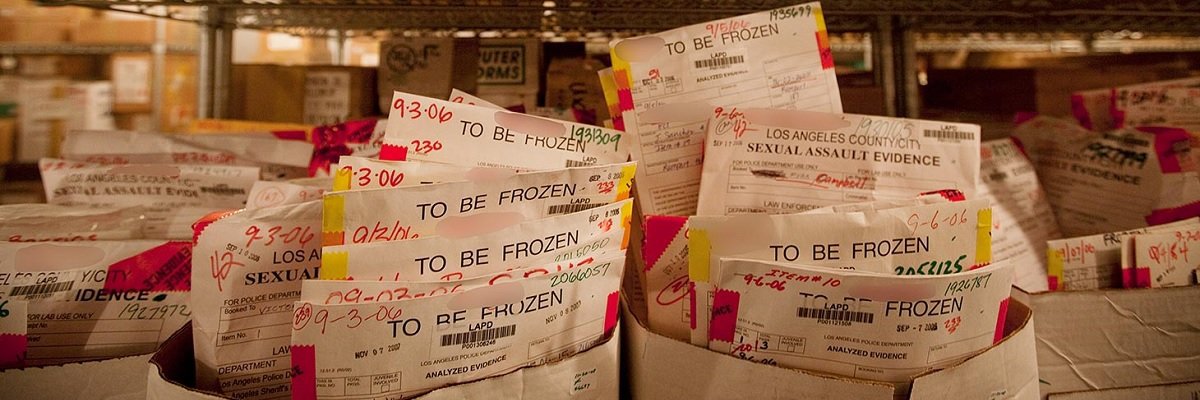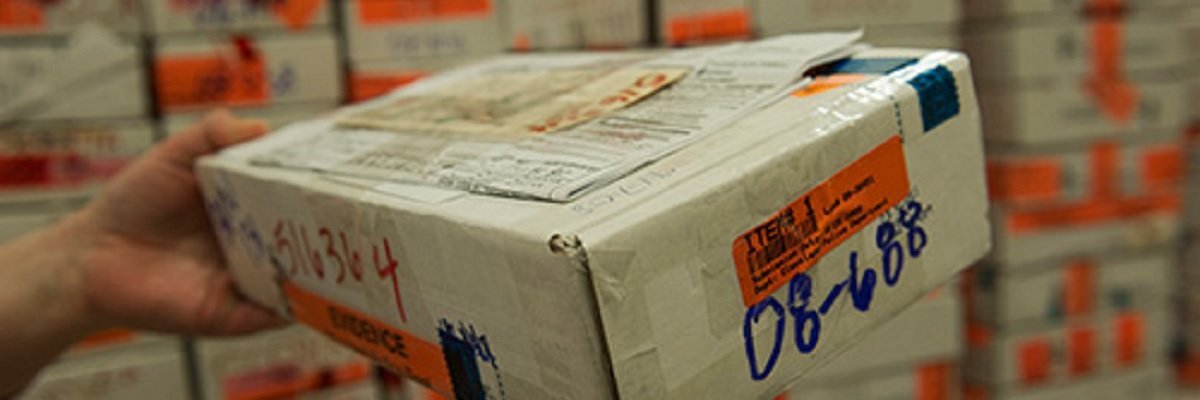Like other crime scenes, the bodies of sexual assault victims are scoured for evidence.
Unlike other crime scenes, this evidence often goes untested - meaning the victim’s account may not be believed, serial perpetrators may go unnoticed, and justice is often not felt or served.
To date, the Joyful Heart Foundation estimates over 175,000 sexual assault evidence collection kits sit untested in evidence rooms and crime labs across the country – at least from the 38 states for which this data is available. The actual number is difficult to know, because there’s no federal law requiring keeping tack, and states often fail to keep up on their own.
We asked each state and Washington, D.C. for policies regarding the “collection, maintenance, transfer, and disposal of sexual assault evidence collection kits.” An you can see below, hardly any consistency in the data exists.
At the most basic level, this evidence isn’t even maintained by the same agencies. Our requests were directed to state police departments, state departments of health, Attorney Generals offices, and public safety departments.
All of the requests were filed in December. Only 22 have been completed. Fourteen still haven’t even been acknowledged. And it’s easy to see why it’s so difficult to obtain any definite information.
Iowa, for example, provided us information, but it’s only reflective of one specific laboratory. They also literally told us that a requirement for tracking this information just doesn’t exist.

Vermont has an entire section of their official physical evidence handbook dedicated to sexual assault. North Dakota’s manual for evidence collection made no mention of it.
To be fair, Congress has passed many reforms attempting to end the extreme backlog. And some states, like Pennsylvania, are beginning to introduce their own legislation.

When they do, it becomes even clear why testing every kit is so important. Cleveland’s recent testing of its 4,373 backlogged kits has indicted more than 515 assailants. This number is expected to climb to over 1,000. Detroit’s effort identified more than 770 serial rapists.
Sexual violence stands distinct from other violent crimes because those accused are less likely to go to prison than other criminals. According to the Rape, Abuse & Incest National Network (RAINN), of every 1,000 rapes, 994 perpetrators will see no jail time. It’s a paradigm that only perpetuates the outright lack of justice victims so often feel. Testing backlogged cases means taking a step toward treating sexual assault like the violence crime it is. It means ending a culture that perpetuates victim blaming. It can also exonerate the wrongly accused.
But to reach this goal, more data and accountability is needed from state agencies. The lack of any homogeny surrounding policies works in opposition to any steps forward. The backlog will exist as long as its extent is unknown.
Image via GirlsSpeak.org




